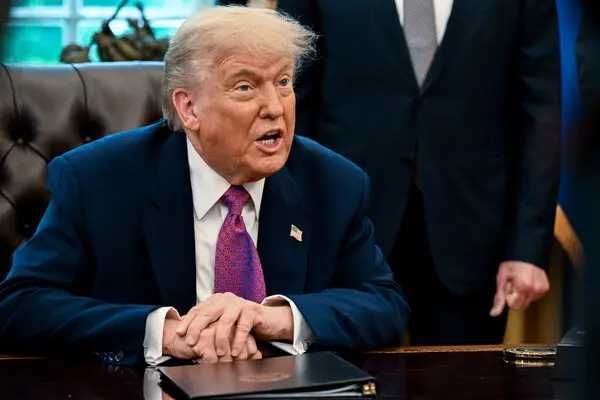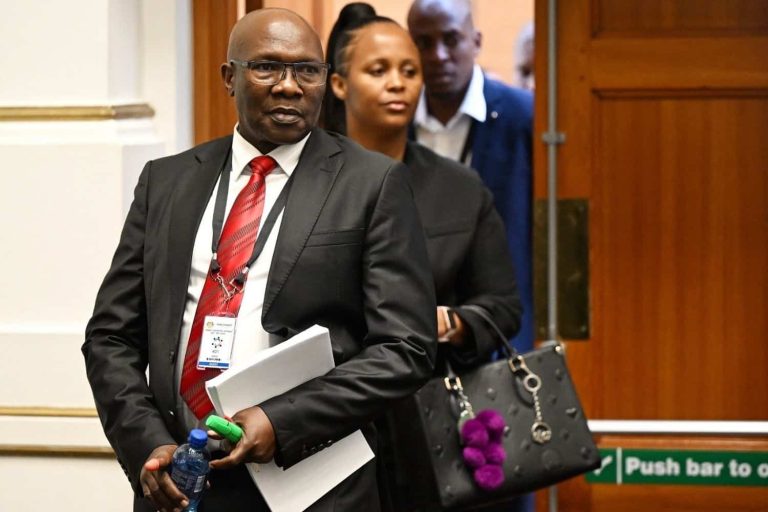
U.S. President Donald Trump reignited tensions over press freedom on Friday, blasting what he described as overwhelmingly negative — and “illegal” — coverage of his administration, while weighing in on the controversy surrounding comedian Jimmy Kimmel’s suspension by ABC.
“They’ll take a great story and make it bad. See, I think it’s really illegal, personally,” Trump told reporters in the Oval Office, renewing his claim that “97 percent” of media coverage about him is negative.
The remarks come as Trump pursues multiple defamation lawsuits against major outlets this year, most of which have faced steep legal challenges.
The 79-year-old Republican, a voracious consumer of television news, aimed his sharpest criticism at US broadcasters, while rushing to the defense of Federal Communications Commission (FCC) commissioner Brendan Carr.
Carr has stirred national debate by threatening sanctions against networks airing Kimmel’s show after the comedian joked about the assassination of conservative activist Charlie Kirk.
Within hours of Carr’s warning, ABC announced that Kimmel’s show was suspended indefinitely, a decision that has sparked widespread debate over censorship and government interference in media.
Trump hailed Carr as “an incredible American patriot with courage,” even as concerns mounted within his own party. Texas Senator Ted Cruz, a close Trump ally, cautioned against the government dictating acceptable speech.
“I think it’s dangerous for a government to put itself in a position to say what speech it may or may not like,” Cruz said, likening Carr’s threats to a scene from Martin Scorsese’s Goodfellas. “That’s right out of a mafioso coming into a bar, going, ‘Nice bar you have here. It would be a shame if something happened to it.’”
Meanwhile, Trump faced a blow in his broader campaign against the press: a federal judge dismissed his $15 billion defamation lawsuit against The New York Times, issuing a blistering ruling that undercut his efforts to muzzle the media through litigation.
The clash over Trump’s rhetoric, Kimmel’s suspension, and Carr’s threats has reignited the perennial American debate over the limits of free speech — and whether political power is being used to silence critics.



